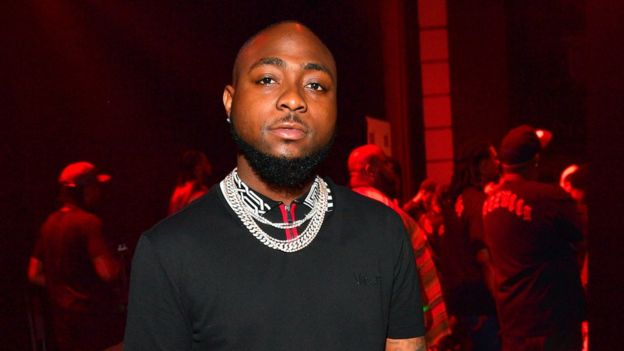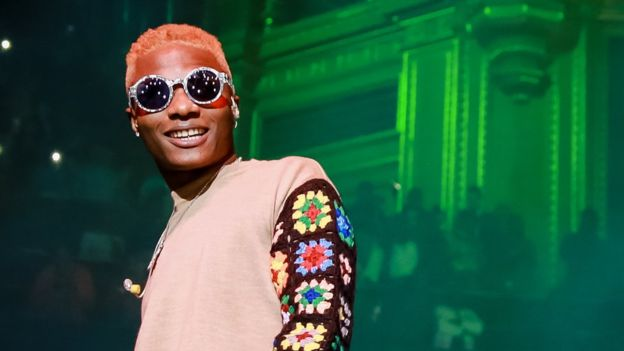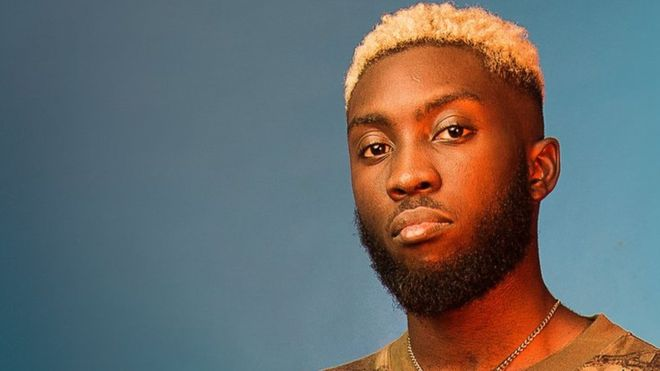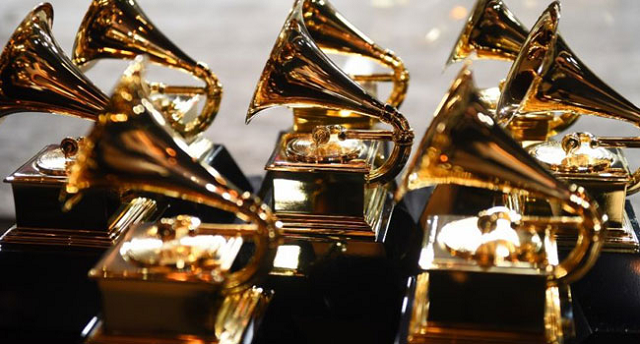One of the biggest exports coming out of Nigeria right now is music, with Afrobeats stars such as Davido and Wizkid making it big on the international stage.
It’s no surprise that global music giant Universal Music Group (UMG) has expanded its tentacles and set up a new venture in Nigeria.
The world’s largest music firm is home to many popular international artists, including Drake, Eminem, Kanye West, Rihanna and Taylor Swift.
It also has record labels like Def Jam Recordings, Island UK, EMI and Cash Money Records.
The strategy is to take West Africa, and African music in general, to the world”
Nigerian music is permeating playlists across the world, and its stars have a huge fan base.
Last month, Davido performed in front of thousands at the Wireless Music Festival in London and is due to embark on a US tour later this month.
And Wizkid made history last year by being the first Nigerian solo act to have a sold-out show at London’s iconic Royal Albert Hall.
‘Talent blooms’
Universal Music Nigeria’s new general manager, Ezegozie Eze Jr, says there is “no better time to invest” in the West African state.
“The talent on ground is burgeoning and blooming and the international market is yearning for more,” he told the BBC.
“The strategy is to take West Africa, and African music in general, to the world. ”
The company already has an existing establishment in South Africa, has set up an office in Ivory Coast and has bought Kenya record label AI Records.
“Our presence in the market also means that the doors are now open for partnerships, collaborations and opportunities for our talent, both in Nigeria and across all other markets we operate in,” Mr Eze says.
So far Universal Music Nigeria has signed Nigerian artists WurlD, Odunsi the Engine, Tay Iwar, and award-winning Ghanaian artist Stonebwoy.
‘Profitable Nigerian brand’
In partnership with other UMG labels, Nigerian artist Tekno and Tanzanian singer Vanessa Mdee are also on their books.
UMG’s arrival has created a buzz in the music industry in Nigeria.
The company, based in Lagos, will be involved in a range of activities from marketing and digital promotion to music production and streaming.

Beyond this, there’s also the financial value of their investment.
Music pundit Ayomide Tayo, from Pulse Nigeria, says both the company and Nigeria’s entertainment scene will benefit.
“It shows that it’s profitable as a business to invest in a Nigerian brand or Nigerian artiste,” he says.
“It’s also a big deal because it brings jobs to us.”
Nigeria’s entertainment and media market is the fastest-expanding major market globally.
And the country’s music industry is one of the biggest in Africa.
The revenue generated from music in 2016 was $39m (£30m), a 9% increase from the previous year, according to a PricewaterhouseCoopers (PwC) report.
It also suggested that the industry should expect an annual growth rate of 13.4% in 2021 to reach $73m.
Despite the global recognition, the industry still has challenges.
Pirated music on blogs, the illegal sale of CDs on the streets, and the legal structure around contracts and records are big issues. Artists lose millions of naira, the local currency, as a result of the illegal distribution of CDs.
Some, like Akinyemi Ayinoluwa, who specialises in entertainment law, feels the arrival of Universal Music Nigeria will help fight this.
“I believe they can bring global best practices down to Nigeria. It is a smaller world in 2018. The biggest acts/talents are global, traversing far-flung parts of the world, forging ties with different business executives and companies,” he told the BBC.
‘Benefiting all parties’
But Universal Music Nigeria isn’t the first international music label to launch in Africa’s most populous nation.

Two years ago, Sony Music Africa set up shop in the country, signed deals and collaborated with some of the biggest acts, including Wizkid, Davido and Ycee.
However, its presence has not led to a solution to piracy.
For Tayo this is because local players still have a major part to play.
“We shouldn’t expect the big boys to do our business for us or do the dirty work for us,” the music pundit says.

“It’s time for local players to collaborate, merge if necessary and create a structure that will favour all parties – not only the artists but people at the back end also: the engineers, the mixers, the managers, the producers,” he says.
“It’s high time we get our acts right but we shouldn’t wait for UMG, hopefully this should trigger it.”
Mr Eze is optimistic about such challenges, saying the company will work with local regulators and others to tackle them.
It is this attitude that many hope will lead to an acceleration of the professionalism in Nigeria’s music industry.














